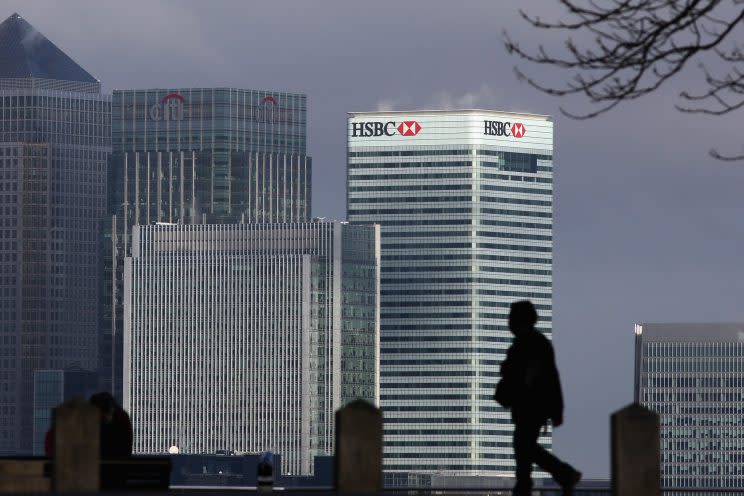The three things businesses need to survive Brexit

“We export more to Ireland than we do to China, almost twice as much to Belgium as we do to India and nearly three times as much to Sweden as we do to Brazil. It is not realistic to think we could just replace European trade with these new markets.” Theresa May, April 2016.
While the Prime Minister seems to understand that trade with the European Union is sizeable, she also seems to be under the illusion that Britain can pick and choose during the Brexit negotiations. Let’s keep trade but stop immigration, payments to Brussels, and oversight from the European Court of Justice. This option won’t be available.
MORE: Brexit trade deals: Where does the UK stand with countries around the world?
The reality is that Britain faces a trade-off. More distance from the EU means bigger income loss. The Centre for Economic Performance at the London School of Economics estimates that a hard Brexit, i.e. falling back on World Trade Organization terms, will cut trade by 40% over 10 years. For the average household earning around £23,000, this translates into £600 less per year. The softest version of Brexit, i.e. the Norwegian model, still reduces trade by 20-25%, and household income by £300.
Unlike May, UK businesses are keenly aware of these trade-offs. After their dressing-down at the election, the government is finally listening to their demands. Here are the three things business needs and why it will be tricky to achieve these goals.
A transition period
According to a recent survey by the Confederation of British Industry, 40% of businesses say that Brexit affected their investment decision. And for 98% of them, it’s in a negative way. The main issue for them is uncertainty, businesses can’t wait until a final deal emerges. Hence, the only solution is a commitment to a transition period that preserves access to the single market and membership of the customs union.
MORE: Time for Brexiteers to get real and sign up some experts – Warwick Business School
Eurosceptics are reluctant to agree to such a transition period, as they are afraid it will turn into a permanent arrangement. The good news is that a recent statement by prominent Leaver Michael Gove indicates that they are coming round to the idea. The bad news is that EU members realised that this uncertainty is prompting companies to relocate parts of their business to Europe. Paris, Frankfurt, and Dublin are most excited about the prospects to grow their financial services sector, while an announcement by Easyjet to set up a new subsidiary in Vienna to keep its EU license after Brexit shows that other cities are hopeful too.
2. Access to the single market
Eurosceptics’ fear of a transition period turning permanent is not unwarranted. Businesses will certainly lobby for it as access to the single market and membership of the customs union is the best possible outcome for them anyway.
In a new study which I co-authored with Michael Mayer, Julia Hautz, and Richard Whittington, we show that British companies’ international activities were always less Europe-focused than those of their counterparts in Germany and France. Still, 44% of British exports go to the EU and 16% to countries with EU free-trade agreements. In many industries complex supply chains mean that a product crosses the Channel several times before it is completed. If the UK does not want these businesses to relocate, they have to ensure frictionless movement. Long queues at the border are just as bad as tariffs.
MORE: Brexit: ‘There is no place in Europe that can replicate London’s success’
A particularly tricky issue is passporting rights which allow financial institutions based in the UK and regulated by UK authorities the ability to offer their services across the EU. Even in a soft version of Brexit it is unlikely that these passporting rights will be maintained.
3. Access to EU workers
Immigration was repeatedly cited as the main reason why people voted leave. While this was often interpreted as a desire to reduce immigration, surveys typically asked about regaining control over immigration. In Lord Ashcroft’s election day poll, for example, 49% of leavers cited this as their main motivation. Businesses do not have a problem with such a stance as long as control does not come with an avalanche of bureaucracy.
From a business perspective, the interest of the UK and the EU should be aligned. Access to EU workers benefits the economy as a whole. As a farmer who supported Brexit pointedly noted, his fruit empire faces ruin without EU migrant workers.
MORE: Brexit won’t stop the UK leading the fourth industrial revolution
MORE: Leading economist says Brexit will never happen because Britain will ‘throw in towel’
Still, the anti-immigration beast will be hard to tame. The EU is not willing to hand over control over migration as free movement of people is one of the four freedoms. A solution could be an ‘emergency brake’ that is available to members of the European Economic Area, such as Norway. Even a quota might be possible as Lichtenstein, another member of the EEA, has this already.
While a proper transition period, access to the single market, and the possibility to recruit in the EU are most important for UK businesses, the list is much longer.
The new efforts of the government to engage with business give cause for optimism. Most likely, the government has noticed that the voter’s mood has shifted. In a recent survey, 52% want a soft Brexit, while 44% prefer a hard Brexit. Unfortunately time is not on the UK’s side and many business leaders are discouraged that Britain remains in a state of nervous breakdown rather than hammering out realistic suggestions.
Christian Stadler is the Professor of Strategic Management at Warwick Business School. He is author of Enduring Success: What We Can Learn From The History Of Outstanding Corporations.

 Yahoo Finance
Yahoo Finance 

